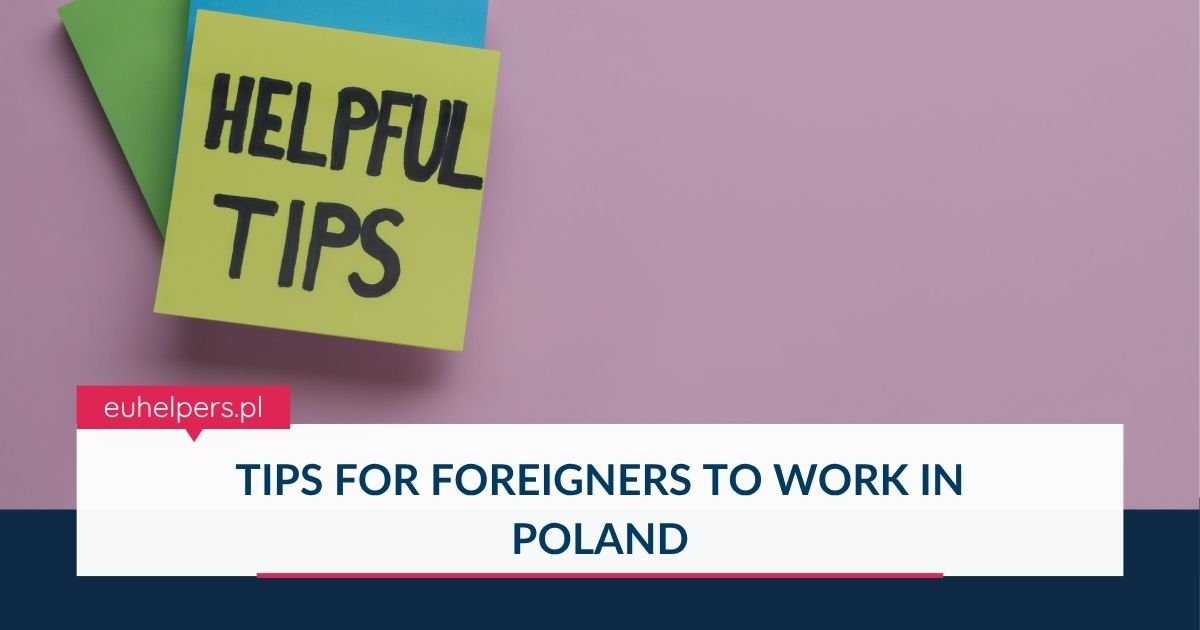Poland is an increasingly popular destination for foreign professionals, offering job opportunities across a variety of industries, from manufacturing and IT to education and services. For non-EU citizens, however, the process of securing employment involves specific legal and administrative steps. This guide outlines the essential documents, procedures, and tips for successfully finding work and relocating to Poland.
1. Key Documents and Requirements for Foreign Workers
Before you can begin working in Poland, you’ll need to gather the necessary documents and meet certain conditions. These include:
-
Valid Passport: Your passport should be valid for at least three months beyond your planned stay in Poland.
-
Job Offer Letter: A formal job offer from a Polish employer outlining your position, responsibilities, salary, and terms of employment is essential.
-
Work Permit and Visa: In most cases, your employer is responsible for applying for both your work permit and visa.
-
Resume/CV: Prepare a professional CV in the European format, clearly detailing your qualifications, skills, and professional experience.
-
Proof of Funds: You may need to show that you have sufficient financial resources to support yourself during your stay.
-
Health Insurance: Valid health insurance coverage is required for your visa and stay.
-
Passport-Sized Photographs: Make sure your photos meet Polish visa standards.
-
Accommodation Proof: Submit documentation proving where you’ll be staying in Poland—such as a lease agreement or a letter from a host.
2. Understanding the Work Permit and Visa Process
Employer’s Role
Your prospective employer is generally responsible for initiating the work permit process. This includes submitting your employment details to the local Voivodeship Office (regional authority), which issues the permit.
Visa Application
Once the work permit is approved, you must apply for a national visa (Type D) at the Polish embassy or consulate in your home country. Be prepared to complete application forms, provide supporting documents, and possibly attend an interview.
Labor Market Test
In some cases, before hiring a foreigner, the employer may need to conduct a labor market test to confirm that no suitable Polish or EU candidate is available for the job.
3. Job Search Strategies and Networking
Online Job Portals
Start your job search using popular Polish job websites such as:
-
Pracuj.pl
-
Jobs.pl
-
Indeed Poland
-
LinkedIn
These platforms often include listings specifically open to international candidates.
Recruitment Agencies
Consider working with agencies that specialize in placing foreigners in Polish companies. They can help streamline the application process and match you with roles suited to your profile.
Networking
Building a professional network in Poland can significantly boost your job prospects. Attend industry events, job fairs, and use social media platforms like LinkedIn to connect with Polish professionals in your field.
Polish Language Skills
Although English is used in many workplaces—especially in international firms—learning basic Polish will improve your integration and job prospects, particularly in customer-facing or local companies.
4. Tips for Success in the Polish Job Market
-
Be Thorough: Double-check that all documentation is complete, accurate, and up to date before submitting applications.
-
Show Professionalism: Dress appropriately and maintain a professional demeanor in interviews and meetings.
-
Be Punctual: Time is valued in Polish business culture, so always arrive on time.
-
Stay Persistent: The job search can be competitive, so stay motivated and keep applying.
-
Understand the Culture: Familiarize yourself with Polish workplace norms and social etiquette. This will help you adapt more quickly and build better relationships at work.
Finding a job in Poland as a foreigner is a multi-step process that requires preparation, patience, and determination. From securing a job offer and managing legal documentation to learning about the local culture, each step plays a crucial role in a successful relocation. By following the tips and processes outlined above, you’ll be better equipped to start your professional journey in Poland with confidence.

